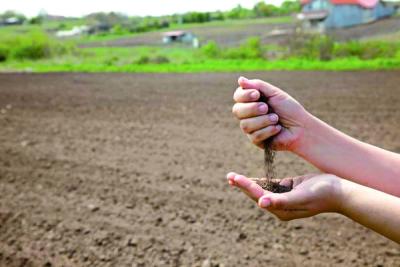A glance at the Truth and Justice Commission report concerning the land dispossession issue shows that many alleged victims who have appeared before the commission are Catholics whose lands are being occupied by their coreligionists or organisations geared by the latter.
During his Ministry on the island, Father Jacques Désiré Laval gave a new impetus to the Catholic faith and contributed to convert the bulk of liberated slaves and their descendants. They accounted for the major fringe of the population when he arrived in 1841.
When they became good Catholics they not only forgave their former masters who, were Catholics, but also welcomed the indentured labourers considering them with the loving heart of practicing Christians as taught by Father Laval.
When Father Laval died in 1864, the Asian population had doubled that of the Afro descendants and this transition had been very peaceful.
The possessing class was numerically inferior in a now multi-ethnic context but it shared the same religion with those of mixed and African descent. The situation has remained pretty much unchanged.
Historically disadvantaged, the Afro descendants and those of mixed descent had more difficulties than others to climb the social ladder and most of them are still at the lowest rung.
While the Catholic faith has provided a moral framework to former slaves and their descendants, some believe that promotion of more worldly matters has been wanting.
For instance the Truth and Justice Commission is of opinion that “In stark contrast to the work of Reverend Lebrun, who taught children of ex-slaves to read and write, Père Laval failed to educate slaves. The results are clear: Lebrun’s ‘children’ rose up to become the first island’s lawyers, doctors and journalists and led the struggle for civil rights in the 19th and 20th centuries.”
I rather believe that Father Laval did inculcate moral bearings to the liberated slaves and their descendants, which is a significant aspect of education. During his passage a noteworthy decrease in crime and alcoholism has for instance been accounted. He was also working under the constant threat of being expelled by the British administration that was not comfortable with the presence of French priests, wishing that the ex-slaves would rather adopt Protestantism amongst others. Therefore, he had to show a low profile in some respects.
What might be true is that there might not have been a follow-up that matched the unfathomable zeal of Father Laval.
As a practicing Catholic who participates in the Church, I personally believe the community can significantly contribute to help unravel the land dispossession case. More so because it touches vulnerable members of its herd who, in some ways, have been victims of their weaknesses. I might as well be wrong considering that it is also an intricate issue with complicated legal implications.
However, it is also a straightforward moral issue and in the spirit of truth and justice it might not be hopeless to sit down at the table of brotherhood and sort out the issue in a spirit of dialogue and support.
For example, it would be helpful if those alleged victims who have been advised by the TJC to refer their case to an appropriate authority or court, be monitored as required, considering that many among them might neither have the financial means nor the appropriate knowhow to engage into such enterprise.
Truth and Justice are pillars to all beliefs and vital to healthy human interrelationship. Let’s walk together to make it happen. It might well be the greatest gift we could make to Father Laval on the 150th anniversary of his birth to eternal life.
TRUTH AND JUSTICE COMMISSION REPORT : The Catholic Community can contribute to help unravel the land dispossession case
- Publicité -
EN CONTINU ↻


